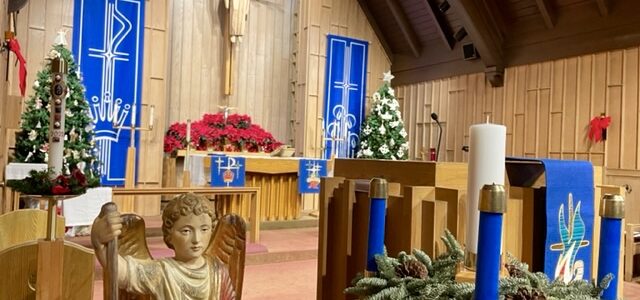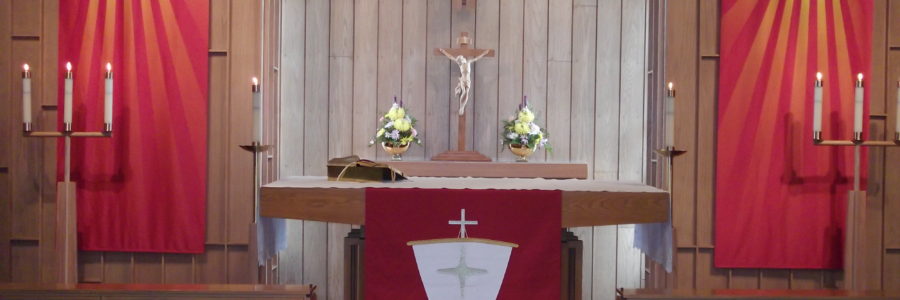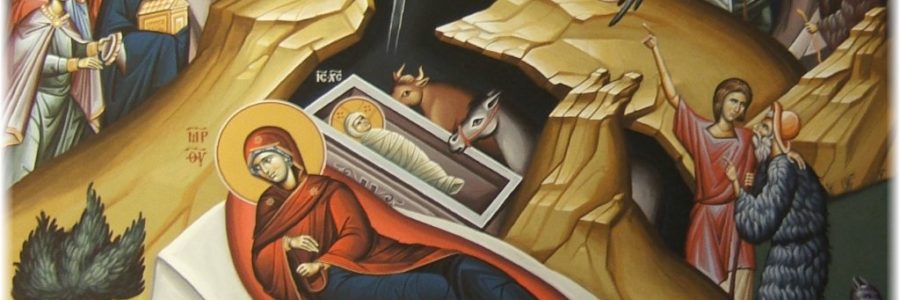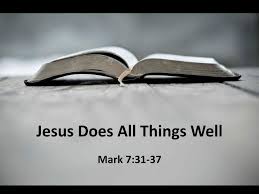Dearly Belovéd Saints of God:
Andy Williams once sang, “It’s the most wonderful time of the year!” But, unfortunately, part of what goes with this wonderful time of the year is something that is not so wonderful. Namely, we find ourselves being inundated online, on television, in magazines, and in newspapers with the supposedly “groundbreaking” idea that we do not really know when Jesus was born. This idea has been repeated so often and in so many different ways that even many faithful Christians have accepted the premise that the Church simply “made up” the date for the Birth of Our Lord, or that they took the date from pagan worship on the Winter Solstice.
But what if I told you that December 25th very likely is the day on which our Lord was truly born? What if I told you that the evidence actually points to December 25th as Jesus’ true birthday (and, at the same time, refuted most of the objections to that date)? Please take a look at these conclusions as you prepare your hearts and homes for our celebration of the King’s Birth!
Objection 1: The Bible does not say specifically December 25th.
This is certainly true. The Bible does not ever mention that date. But St. Luke is a faithful historian who tells us that he interviewed eyewitnesses and researched the events when he wrote his Gospel (St. Luke 1:1-4). And he tells us that Zechariah (father of St. John the Baptist) was a priest “of the division of Abijah” (St. Luke 1:5). In I Chronicles 24, we read that David divided and organized the divisions of priests and specific assigned times for their service. What that means is that each division would have served two yearly shifts of being “on duty” in the Temple for about a week at a time. The division of Abijah was assigned the 8th and 32nd rotations.
That would put Zechariah’s group on duty around the Day of Atonement (September 22-30), after which, when he returned home, John the Baptist was conceived. That would put John’s birth in late June – and from earliest days, the Church has celebrated St. John’s birth on June 24th
But St. Luke’s chronology does not stop there. He says six months after Gabriel appeared to Zechariah in the Temple, he was sent to the Blesséd Virgin Mary in Nazareth (St. Luke 1:26). Six months after late September would be late March – and March 25 has always been the date celebrating Christ’s conception in the womb of the Blessed Virgin Mary (and we’ll come back to that date in a bit). Nine months from there brings you to late December…December 25th!
Objection 2: The shepherds wouldn’t have had flocks out at night in the winter.
If you lived in the climate of northern Europe or the American Midwest, this would be obvious. However, the climate of the Middle East a bit different – more similar to our southwest. It can get cool and chilly, but usually not freezing.
The Awassi Sheep is the breed of sheep indigenous to the Middle East, raised primarily for milk, meat, and wool. In Judea, they would have been used for sacrifice as well – and those males without mark or blemish would have been the Paschal Lambs in the Temple. Their breeding season runs from June to September with the lambs being birthed from December to mid-January. So it is very possible that those shepherds “keeping watch over their flocks by night” were doing so in late December, because the ewes were giving birth.
Objection 3: The Church just picked December 25th in the late Fourth Century to repurpose a popular pagan festival for the sake of evangelism.
This is the most popular and widely accepted response to the Birth of Christ being on December 25th, but it is, in fact, the weakest. It is surprising and a bit sad how many Christians uncritically accept this argument.
It is certainly true, that there was a festival of Sol Invictus (the Unconquered Sun) established in Rome by the Emperor Aurelian. However, it was not particularly important to the Romans. The so-called “Saturnalia” was simply a general solar cult to which Emperor Aurelian attached his name (from the Latin aurora, meaning “sunrise”) in the year 274, which is quite late. On top of that, Saturnalia ran from December 17-23, it was not on the 25th of December.
Another question is: why would the Church, which for centuries had stood against pagan festivals and worship and exhorted Christians to not participate in such, suddenly allow one to stand, and simply Christianizing some of its elements?
The Church, rather, had been, for at least 150 years prior to Emperor Aurelian, speaking of December 25th as the date of the Birth of the Lord Jesus. Theophilus (115-181), Bishop of Caesarea said: “We ought to celebrate the birthday of Our Lord on whatsoever day the twenty-fifth of December shall happen.” St. Telesphorus, Bishop of Rome from 126-137, established the custom of the Midnight Mass – the celebration of the Divine Service in celebration of the birth of Christ at midnight on December 25th. St. Hippolytus (170-240) calculated the birth of Christ to December 25th (which he said was a Wednesday) based on Jesus’ death on March 25th (Friday).
In fact, what is instituted in the latter half of the fourth century is the Natalis Sol Invictus (the Birth of the Unconquered Sun) on December 25th. This is simply an attempt by an apostate emperor (in fact he became known as Julian the Apostate) to reestablish “classic” Roman paganism and suppress the Christian Church in 354. There is, prior to Julian the Apostate, a reference to “Thirty games ordered for the Nativity of the Unconquered” but with no mention of the sun. Perhaps this was an attempt by a Christian emperor to celebrate the birth of Christ with games and festivity.
There is final reason for celebrating the Birth of Jesus on December 25th. This involves the calculations and research of St. Hippolytus and arrives at a theological reasoning for the date: In the ancient world, even in Judaism and in the early Church, it was thought a person lived a complete “cycle.” This means that on whatever date a person was conceived (the beginning of their life), they would later die (the end of their life). This was held especially true of important persons.
Hippolytus calculated from Holy Scripture the date of Jesus’ death, the first Good Friday, as being March 25th. So if Jesus died on March 25th, He would have been conceived on March 25th following this ancient belief, for nine months from March 25th brings you to December 25th. For Hippolytus, Jesus had to be born on December 25th because He died on March 25th – the two had to be intimately connected. The date of Jesus’ Birth is based on the reason and purpose of His Incarnation and Birth: namely His death upon the Cross.
For Jesus did not take on Flesh of your flesh and Bone of your bone just to be adored as the Babe in the manger. The Word is made Flesh, God becomes Man and is born, in order to die. Jesus comes to die for you. That is what is at the heart of our celebration on December 25th: the Death and Resurrection of Jesus Christ for sinners: to redeem you from sin, death, and the devil.
The Child lying in the manger comes to be your Sacrifice and Ransom. He comes to appease the Father’s righteous wrath over sin, to answer the Law’s accusations, and crush the serpent’s head for you. The Son of Mary is wrapped in swaddling clothes that He may leave the grave linens empty and useless. God is born to die that He may raise you from the grave. He lies in a feeding trough to give Himself as Food for the life of the world, to satisfy your hunger and slake your thirst. Jesus comes for you to exalt you to Heaven.
We celebrate the birth of Him whose coming again on the clouds of Heaven we eagerly await by receiving Him in the Holy Sacrament. For the One born of Mary and laid in a manger in Bethlehem (which, by no coincidence, means “House of Bread”), continues to come to you now, today, in His Body and Blood. I can say with all the confidence that the greatest gift you will receive this Christmas season is the Holy Communion, given to you by your Savior in love that your joy may be full.
Have a Blesséd and Merry Christmas,
In Christ,
Pastor Steven Anderson
(Tremendous thanks to the Rev’d. Ronald Stephens for much of the research here.)




